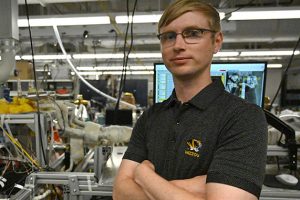
June 13, 2023
Mizzou Engineer receives CAREER Award for research around polymer science
In the Mizzou Thin Film Coatings and Materials Electrochemistry Lab, Matthias Young is advancing the field of polymer science for technologies such as batteries and water desalination.
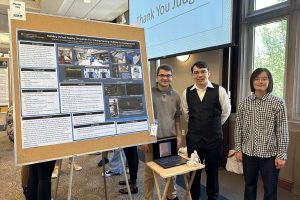
April 21, 2023
Students show off projects at Show Me Research Week
Clean water, healthcare and education - all topics that impact nearly every person, and all topics that were researched and presented by Mizzou Engineers at Show Me Research Week.
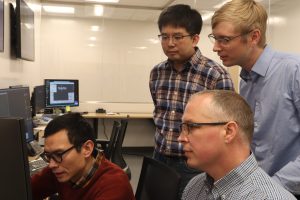
March 22, 2023
A new view of microscopic processes
With the support of a two-year, $800,000 grant from the National Science Foundation and an additional $300,000 from the university, Matt Maschmann and a team of researchers are purchasing new equipment which will allow researchers to conduct scientific experiments while simultaneously viewing reactions as they happen in real time.

March 10, 2023
Students from engineering research group win awards at MOCAP summit
Students from a Mizzou Engineering research group brought home three student poster awards from the 2023 Spring Summit for the Missouri Center for Advanced Power Systems (MOCAP).
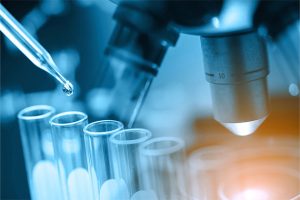
Jan. 5, 2023
Department of Chemical and Biomedical Engineering name change reflects research focus
Mizzou Engineering will put more focus on research and innovations around chemical and biomedical innovations in the coming years.
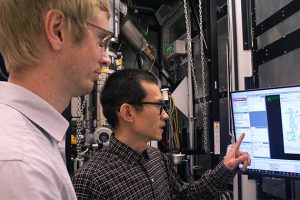
Sep. 27, 2022
In pursuit of better lithium-ion batteries
MU researchers Matthias J. Young (left) and Xiaoqing He are using a $500,000 grant from NSF to explore a key technical challenge preventing lithium-ion batteries from achieving optimal energy performance. By Eric Stann | MU News Bureau From personal electronics to electric vehicles, lithium-ion batteries are used in many technologies today. Over the last 30 years, scientists have worked to improve the overall safety and performance of these batteries by converting a key component, called electrolytes, from liquid to solid — partly due to an issue of the liquid being flammable. Yet, while solid-state lithium-ion batteries — using solid electrolytes…

Aug. 25, 2022
Building polymers one molecule at a time
A Mizzou Engineering researcher has demonstrated a new method of controlling material behavior by building polymers molecule-by-molecule. Polymers are made of long, repeating chains of single molecules known as monomers. In this study, Matthias Young — an assistant professor of biomedical, biological and chemical engineering — focused on monomers that exhibit high electrochemical capabilities, making them good candidates to serve as electrode materials for energy storage. Young and others have previously demonstrated that they could grow inorganic films onto carbon electrodes to make fast-charging batteries and supercapacitors, through a process known as atomic layer deposition. However, scaling up…
Aug. 8, 2022
Mizzou Engineers develop new method to design semiconductors
A new way to make semiconductors:Topology (A) and phase (B) imagery of the functionalized zone after zinc oxide atomic layer deposition. Mizzou Engineers have come up with a novel new technique to design semiconductors, the chips that make your phones, laptops and other devices not only smart, but also compact. Matthias Young and Matt Maschmann outlined a proof of concept for their technique in a recent issue of Nano Select and worked with the Technology Advancement Office to file an application to patent the work. Now, they’re hoping to scale up and optimize the process to make…
- « Previous
- 1
- 2